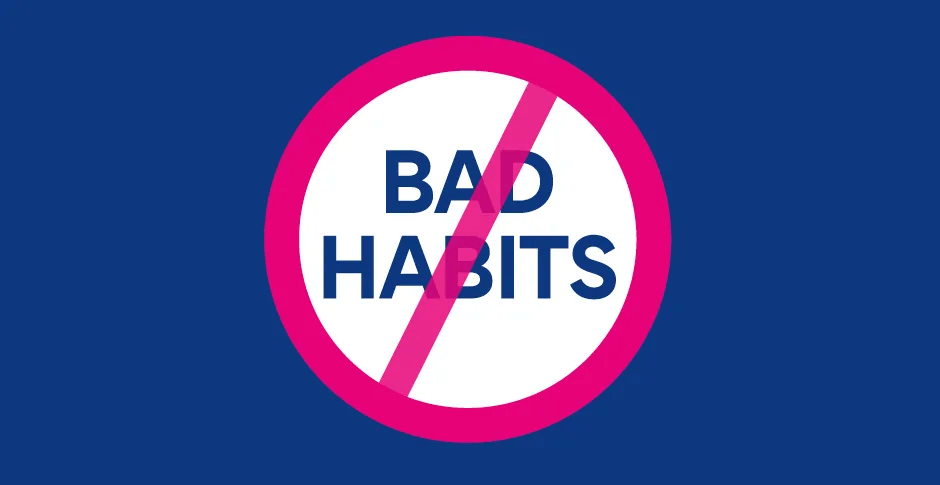Bad recruiting habits you don't know you're doing

Bad habits can really hurt recruiters. But what if you don’t even know you’re doing them?
Lisa Morris, Chief Customer Officer at Hays reveals seven habits that could be wreaking havoc on your talent pool.
1. Not being authentic
Being yourself isn’t always easy, but it’s essential for long-term success in recruitment, according to Morris.
“If you aren’t being true to yourself, you can’t build and nurture the relationships you need, particularly with clients,” she says. “You won’t succeed being inauthentic to yourself, and the people you’re trying to build relationships with.”
“People who have been around for a long time and enjoy success in the industry have a passion for cultivating relationships. They aren’t afraid of picking up the phone, seek out opportunities to have one-on-one conversations and strive to understand and connect with their clients and candidates.”
2. Not having a clear process
No one likes to be kept waiting. Despite this, many recruiters don’t always clearly communicate next steps or even get back to candidates.
“Frustrated candidates will accept a position somewhere else if they don’t know what to expect,” agrees Morris. “Make sure they know what the process looks like and stick to it.”
3. Not using thorough assessment techniques
Great candidates aren’t created equal. In fact, only the most thorough techniques can dig out some of the gems. While many recruiters are expert miners, Morris says others miss hidden gold.
“While some roles still require highly specific technical expertise, human (or soft) skills particularly the ability to plan, adapt and collaborate are becoming increasingly valuable to employers.”
“We’re past the days of specifying a set number of years’ experience. A good HR consultant will delve into what those years consist of and be much less concerned with the number."
“Hirers should use thorough skills assessment techniques for every role.”
4. Not managing expectations
It should be simple. You meet with the candidate, assess their suitability, explain the next steps, and stick to what you’ve said. Sadly, not everyone does, and it’s kryptonite for the heroes in your talent pool.
“A candidate left with an indefinite response time will quickly go from being optimistic to frustrated,” says Morris. “Good hirers make sure the client and candidate have realistic time frames, and meet them.
5. Not challenging your own unconscious biases
Think emotional intelligence isn’t a top skill for a recruiter? Then you should take a long, hard look at yourself. According to Morris, it’s critical for avoiding one of the great pitfalls – our own preconceptions.
“At Hays we look for consultants with a natural ability to connect with people, and that usually comes with well-developed emotional intelligence,” says Morris. “This skill is important for identifying unconscious bias, because not every good candidate will fit the mold you have in your head.
“Organisations try to tackle this bias in various ways, some with quotas, others with measures to ensure shortlists are representative. Even with good emotional intelligence, your assessments need to be backed up with qualitative measures.”
6. Not treating your candidates as well as your clients
Your client pays the bills, so they get five-star treatment, and you’re doing candidates a favour, so they can’t be too fussy, right? Dead wrong, according to Morris. Candidates need top-class treatment, because one day they will be your clients … or not.
“Not providing the highest quality of service to candidates is a mistake. Invariably they become your clients in the future, so you need to take care of them,” she says.
“This doesn’t mean they will all get a job, but meeting their expectations will mean that one day they come back to you with their business.”
7. Not (really) being a consultant
Morris has bad news for recruiters who take a light touch approach. If you’re not deeply engaged with your clients and providing challenging feedback at every stage, you’re not doing your job.
“Hirers should develop their expertise and use it to guide their client so they get the best possible candidates,” says Morris.
“Clients may not realise they are restricting their candidate pool. If you take a job description and skills set straight to market without providing any advice or input, you’re not a consultant.
“True consultants develop expertise and pass it on. This responsibility should never be taken lightly.”